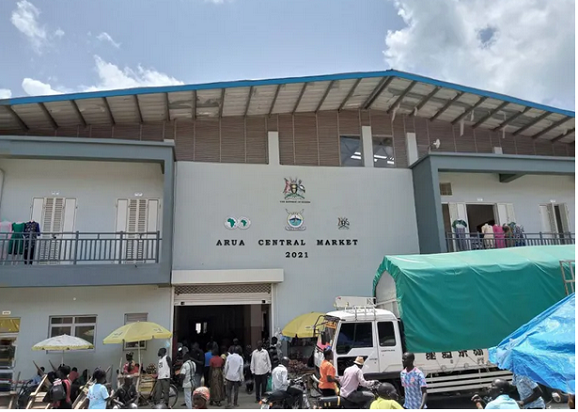A section of Members of Parliament (MPs) has raised concerns over the findings and recommendations in the Auditor General’s 2024 report on the implementation of the Parish Development Model (PDM).
The legislators argue that the report does not accurately reflect the situation on the ground and lacks comprehensive recommendations to improve the project.
The MPs expressed their concerns during a meeting between the Accountability Committees and officials from the Office of the Auditor General on January 31, 2025. The meeting aimed to discuss key highlights of the audit report ahead of its scrutiny next week.
Portrayal of PDM
Mawokota South MP, Yusuf Nsibambi, criticized the report for painting an overly positive picture of the PDM, despite its challenges. He argued that the program lacks clear structures and accountability mechanisms, making it difficult to evaluate its effectiveness.
“The Auditor General gives the impression that almost everything is positive in this programme. But as representatives of the people, at least from my constituency, PDM is really a non-starter. The entire programme lacks clarity, and I expected the technical team to provide guidance on evaluating it. There is no formal structure or accounting officer at any level,” Nsibambi said.
He urged the Auditor General to align his findings with the realities on the ground to ensure Ugandans understand the purpose of PDM funds.
“If this is meant to be a gift, then say so. Otherwise, as Parliament, we rely on your technical advice for oversight. Without clear recommendations, we risk appropriating money blindly,” he added.
Report Lacks Concrete Recommendations
Kashari North MP, Basil Bataringaya, questioned why the Auditor General acknowledged 28 challenges in the PDM but failed to provide sufficient recommendations on how to address them.
“You noted that despite some positive aspects, there are 28 challenges that need to be addressed. But when we look at the recommendations, they are extremely brief. The report does not offer clear guidance on how to resolve these issues,” Bataringaya noted.
He also emphasized the need for the report to assess whether the PDM has successfully lifted the targeted 39% of Ugandans living in poverty and to suggest ways to enhance its effectiveness.
Future of PDM
Budadiri East MP, Isaiah Sasaga, disagreed with calls to shut down the PDM, arguing that it is one of the best programs introduced by the government. However, he acknowledged that many beneficiaries misunderstand its purpose, with some referring to it as “Personal Drinking Money” (PDM).
“PDM is a good programme, but many people do not understand its purpose. If you go to rural areas, some beneficiaries are calling it ‘People’s Drinking Money’ and using the funds for alcohol. They even thank President Museveni for finally remembering them with ‘alcohol money,’” Sasaga said.
To address this, he proposed merging the PDM with Enterprise Uganda to train beneficiaries before disbursing funds. He cited a local woman who transitioned from brewing alcohol to exporting her products to South Sudan after receiving training and funding.
“If recipients were trained—like those who accessed services from Enterprise Uganda—you would see a significant impact. There should be a structured relationship between PDM and Enterprise Uganda to enhance financial literacy and business skills,” he suggested.
Audit Findings on PDM
Earlier in January 2025, Auditor General Edward Akol presented his findings to the Speaker of Parliament, highlighting several financial irregularities in the PDM:
- 902 beneficiaries who received loans worth UGX 896 million had duplicate National Identification Numbers (NINs), identical names, or the same phone numbers.
- 212 SACCOs in 14 local governments failed to account for UGX 1.5 billion withdrawn from their bank accounts, which had not been disbursed to households at the time of the audit.
- 170 beneficiaries in 124 SACCOs across 37 local governments had nonexistent projects.
- 342 beneficiaries in 253 SACCOs across 50 local governments used funds for ineligible projects.
- 2,985 SACCOs in 127 local governments lacked registered offices, while 567 SACCOs in 41 local governments listed non-existent office locations.
As Parliament prepares to scrutinize the Auditor General’s report, MPs are expected to push for stronger accountability measures and policy adjustments to ensure the PDM achieves its intended objectives.





